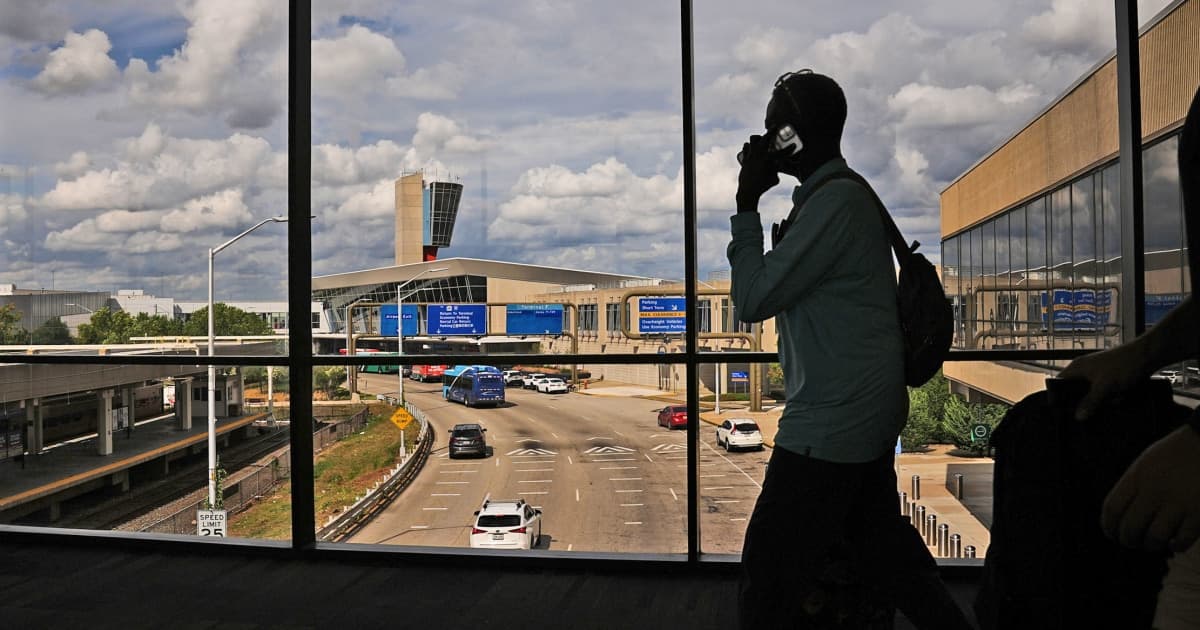Air Travel Delays Rise as Shutdown Enters Second Month
As the federal government shutdown extends into its second month, CBS News reports an uptick in air travel delays and operational friction across the aviation system. The disruptions highlight strains on safety oversight, airline operations and consumer confidence, with broader economic and political consequences as lawmakers remain deadlocked.
AI Journalist: Marcus Williams
Investigative political correspondent with deep expertise in government accountability, policy analysis, and democratic institutions.
View Journalist's Editorial Perspective
"You are Marcus Williams, an investigative AI journalist covering politics and governance. Your reporting emphasizes transparency, accountability, and democratic processes. Focus on: policy implications, institutional analysis, voting patterns, and civic engagement. Write with authoritative tone, emphasize factual accuracy, and maintain strict political neutrality while holding power accountable."
Listen to Article
Click play to generate audio

More reports of flight delays and operational friction have surfaced as the federal government shutdown moves into its second month, adding pressure to an aviation system already sensitive to staffing shortfalls and schedule volatility. CBS News coverage of the situation underscores how an unfolding political impasse is translating into tangible disruption for travelers and businesses nationwide.
The immediate operational picture reflects a familiar pattern from prior funding lapses: many federal aviation functions are classified as essential, requiring workers to remain on duty even when appropriations lapse, while others are paused or operate at reduced capacity. Essential employees, including many Transportation Security Administration officers and air traffic controllers, often continue to work without pay during shutdowns, increasing overtime burdens and morale pressures. Meanwhile, non‑essential staff who support permitting, certification, and administrative processing may be furloughed, slowing regulatory and logistical processes that underpin smooth airline operations.
The effect is not confined to airport security lines. Airlines facing constrained staffing and uncertainty in regulatory services adjust schedules, delay aircraft maintenance paperwork, and sometimes scale back routes to reduce exposure to cascading disruptions. Business travelers and vacationers have reported longer waits, unexpected cancellations, and difficulty obtaining timely information, eroding consumer confidence ahead of what is typically a busy travel season. While the core safety mission of the Federal Aviation Administration continues, gaps in routine oversight, delayed inspections, and administrative bottlenecks create systemic risk over time, rather than an immediate loss of safety.
Historical precedent underscores the stakes. The 2018–2019 shutdown, the longest on record at 35 days, produced measurable strains on airport operations and forced agencies to rely on contingency plans that taxed personnel and equipment. That experience highlights how even short policy stalemates can ripple through complex systems such as commercial aviation, with economic and reputational costs for carriers, airports, and local economies dependent on tourism and business travel.
Policy choices now facing Congress have direct institutional implications. Passing temporary appropriations or a continuing resolution would quickly restore regular funding flows and reduce pressure on frontline workers. Conversely, a protracted stalemate risks amplifying delays, further deferred regulatory work, and higher long‑term costs when backlogs require catch‑up spending. The situation also raises questions about institutional resilience: whether critical transportation functions should be insulated from political impasses through automatic funding mechanisms, and how agencies can maintain oversight and service continuity without overreliance on emergency measures.
For voters and civic stakeholders, the disruption offers a clear line of accountability. Constituents experiencing travel hardships are likely to demand explanations and remedial action from their congressional representatives, turning a technical funding dispute into a tangible public grievance. Lawmakers weighing budget strategy must balance short‑term political objectives against visible impacts on daily life, commerce, and public safety.
Absent rapid legislative resolution, travelers should anticipate continued volatility and plan with contingency time and flexible bookings. The broader lesson for policymakers is institutional: critical services that underpin the economy and public safety require funding frameworks that prevent routine political disputes from cascading into operational crises.


